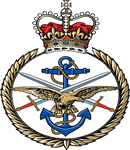Commemorated: | |||
| 1. Memorial: | Basra Memorial | Basra | |
| 2. Book: | The (1921) Masonic Roll of Honour 1914-1918 | Pg.133 | |
| 3. Memorial: | The (1940) Scroll - WW1 Roll of Honour | 9B GQS | |
Awards & Titles: | |||
Education & Career :
Educated at Dover College.
Service Life:
Campaigns:
- British East African Expedition 1896-1901, East Africa.
- The First World War 1914-1918, World-wide.
| Unit / Ship / Est.: 117th Mahrattas Indian Army |
| Action : Mesopotamia |
At the outbreak of war the British, together with Indian troops, resolved to protect oil supply in the region by occupying the area around Basra at Abadan. This evolved into a series of campaigns towards Baghdad against the Turkish forces as Mesopotamia (modern Iraq) was part of the Ottoman Empire. Meetings in late 1914 and into 1915 led the Viceroy and Indian government at Simla to reconsider the limited involvement of troops and they decided to order further advances with a view to securing the Shatt-al-Hai, a canal connecting the Tigris and Euphrates river and potentially capturing Baghdad. The British government disagreed and wished to conserve forces for the Western front. The Viceroy was given permission to act as it wished, but told in no uncertain terms that no reinforcements should be expected.
The initial success experienced by the British and Indian forces quickly disintegrated in the face of Ottoman opposition. The Siege of Kut-Al-Amara began on 7th December with the besieging of an 8,000 strong British-Indian garrison in the town of Kut, 100 miles south of Baghdad, by the Ottoman Army. These campaigns produced few tactical benefits, indeed the catastrophic defeat at Kut in 1916 was a major setback. Badhdad was eventually taken in March 1917.
The conditions in Mesopotamia were dreadful. The climate, sickness and disease produced large losses in addition to battle casualties. About as many men died of disease as were killed in action. The Mesopotamia front was part of a strategy hoping for success at lower cost than the Western Front but no decisive victory was achieved.
Detail :
Broad Arrow 15th October 1915 - "Major Charles Eugene Barnes Robinson, 117th Mahrattas, who was killed in action in the Persian Gulf on the 28th ult., was the eldest son of the late Colonel Robinson, C.B., Royal Irish Fusiliers, and of Mrs. Robinson, of 6, St. Alban Road, Bedford. Born in 1872, he joined the Army in 1894, and was promoted major in 1912. He saw active service in the British East African Expedition of 1901."
Masonic :
| Type | Lodge Name and No. | Province/District : |
|---|---|---|
| Mother : | Star of Agra No. 1936 E.C. | N.W. Province |
| Joined : | Lodge Orion in the West No. 415 E.C. | India |
| Joined : | St. Andrew No. 500 E.C. | India |
Initiated | Passed | Raised |
21st January 1908 | 18th February 1908 | 17th March 1908 |
Initiated into the Star of Agra Lodge, No. 1936 in 1908 and listed as a Captain, Indian Army; Resigned 31st March 1909. Joined St. Andrews Lodge at Kamptee and then Lodge Orion in the West in 1912 at Poona.
Source :
The project globally acknowledges the following as sources of information for research across the whole database:
- The Commonwealth War Graves Commission
- The (UK) National Archives
- Ancestry.co.uk - Genealogy, Family Trees & Family History online
- ugle.org.uk - The records of the United Grand Lodge of England including the Library and Museum of Freemasonry
Additional Source:
- Founder Researchers : Paul Masters & Mike McCarthy
- Researcher : Bruce Littley

